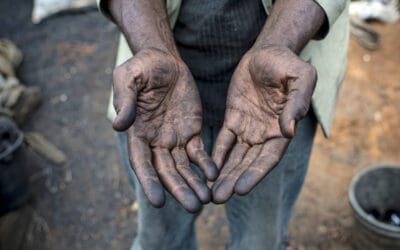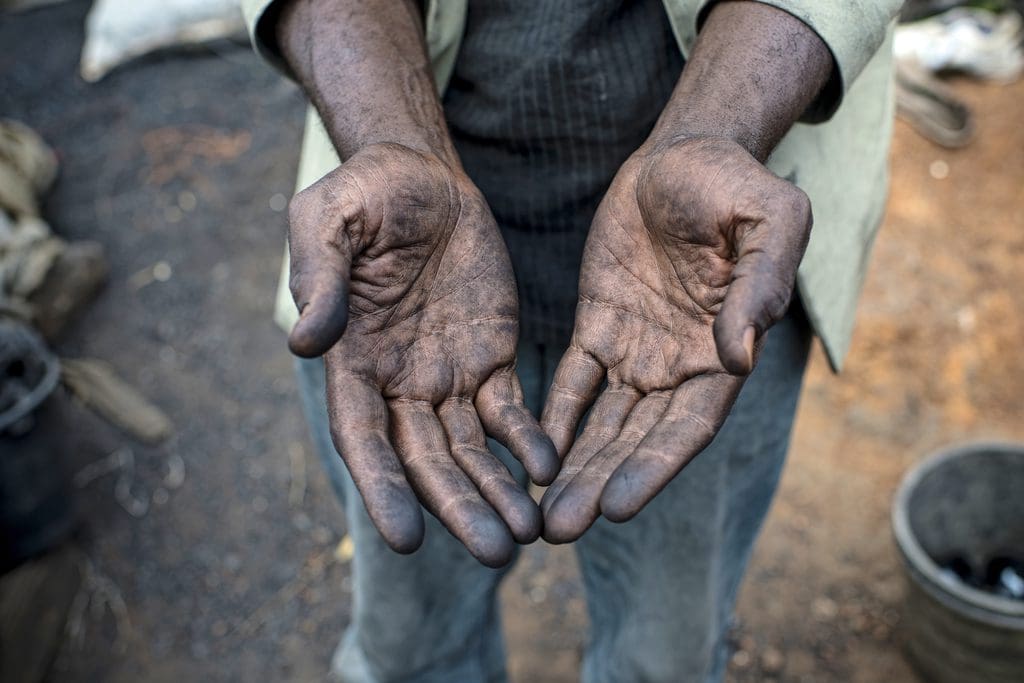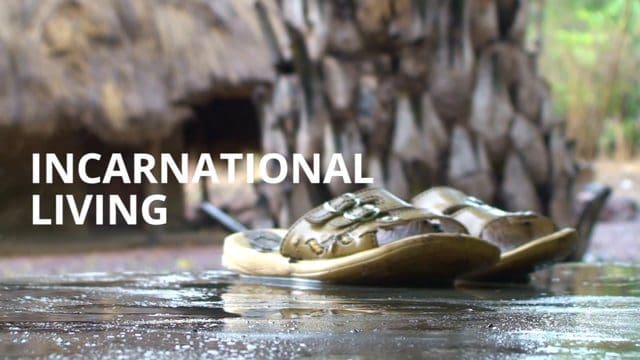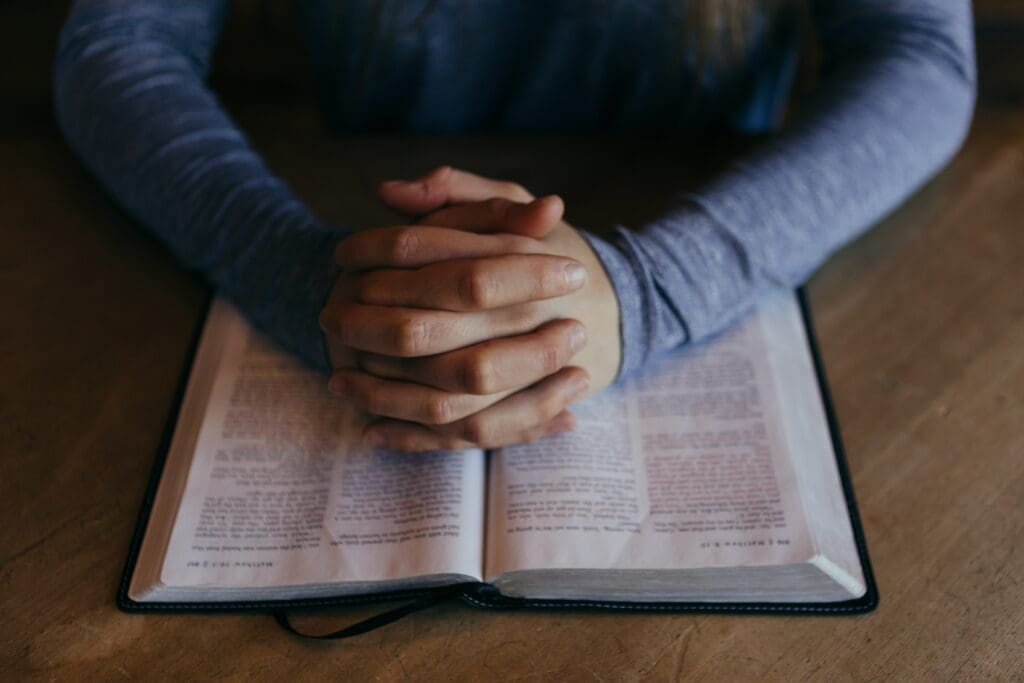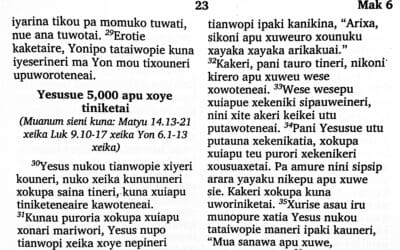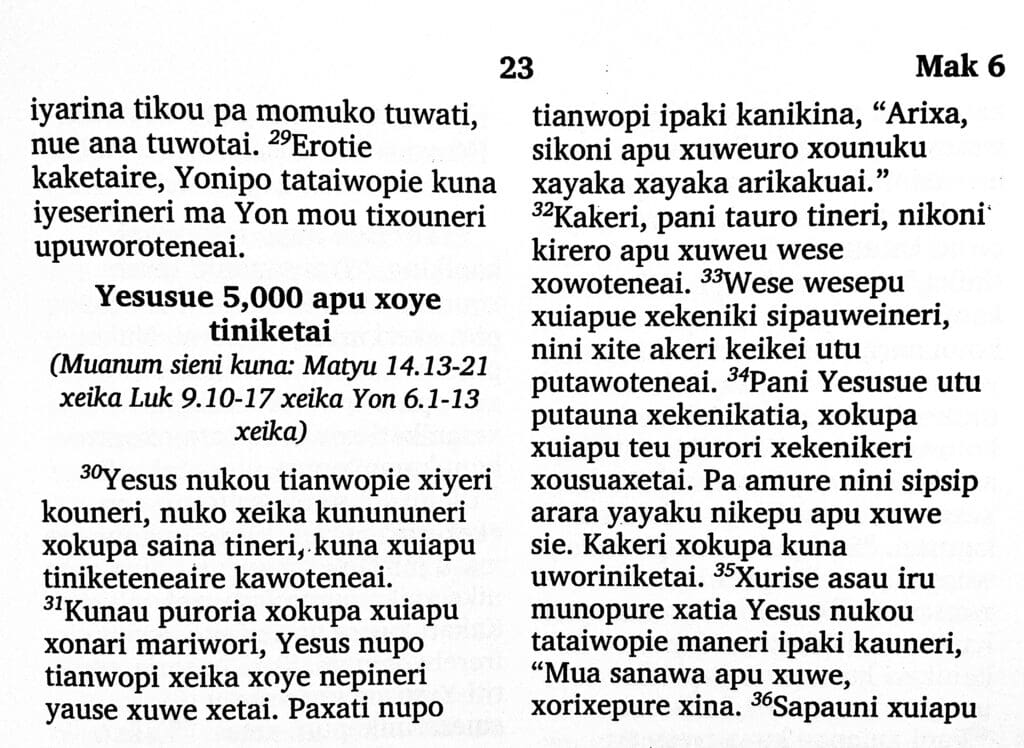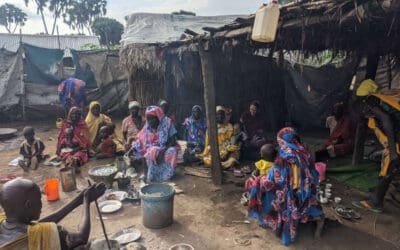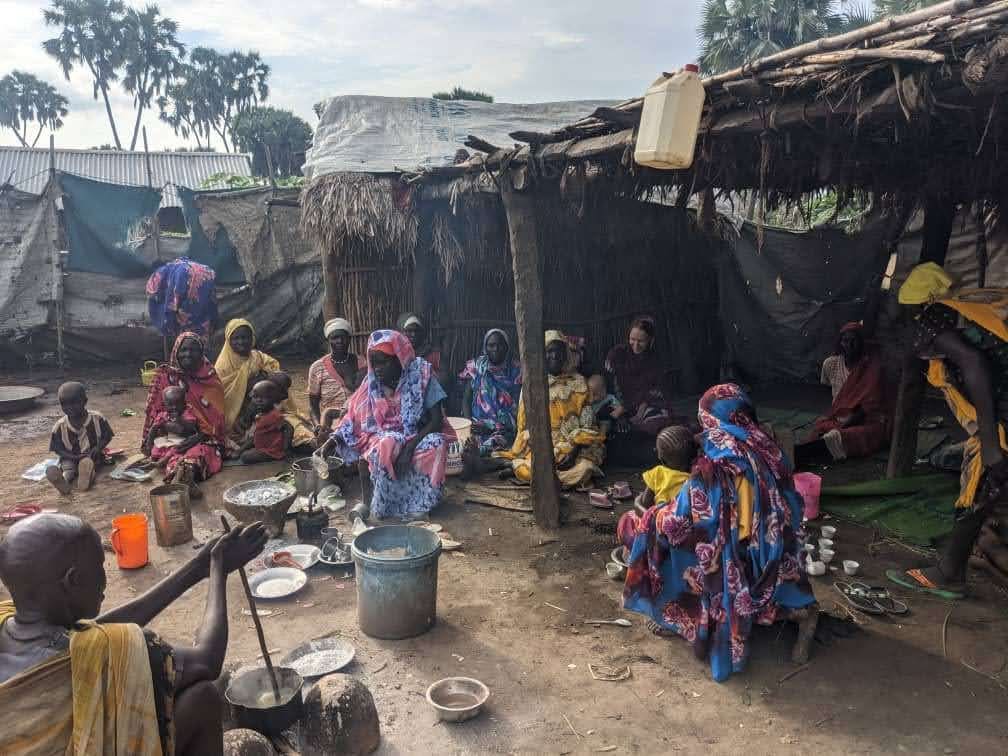At a crossroads in the dusty ground, the music reaches our ears.
Just past the cozy gathering of houses and huts, yet near enough to be noticed, stands the small cement church in the village, much like a new child at school waiting for an invitation to play with the others. From within, the drums and the singing float over the dust and the sand — a call to worship. And so we enter. We enter through the small wooden doorway; we enter into the fellowship of the saints. Hands lifted, voices raised, feet dancing. The darkness inside is a cool shade against the hot West African sun.
The music doesn’t stop for us, and without missing a beat, a place is made for the white-skinned foreigners in the plastic seats of honor at the front of the church. I’ve been here before. Not to this building, or to this village — but to this experience. To these seats with armrests that separate us from the rest of the people on stone benches, to these seats that face the congregation and put us on display.
Seats of Honor
The seats of honor are uncomfortable to me. A visit to a new church in the States will find me slipping into one of the back rows and remaining inconspicuous. As an outsider, I feel it is my duty to observe, to stay on the fringe and absorb everything that happens. But here, oh no. That will never do. As the insiders, the West Africans know it is their duty to honor their guests, and it goes without saying that their seats of honor are at the front of the church.
Our Lord teaches us that it is more blessed to give than to receive, and the gift of honor that is shown to us is a blessing for — and from — these dear believers. My quiet dismissal of the seat of honor, or a polite contention of “no thank you, no special treatment for me” would be no more an act of humility than refusing a handshake extended in greeting. So we sit, graciously.
This time it’s home, and the seats that once were so hard to accept are now welcomed and appreciated.
Yes, I’ve been here before. When I was new to this culture and this place, I was uncomfortable with those seats because I was thinking about myself. Yet in my attempt to be humble and unselfish, I actually appeared prideful and self-centered. This time, though, it’s different. This time it’s home, and the seats that once were so hard to accept are now welcomed and appreciated.
Merging of Cultures
Three years have passed since my feet first became brown with the dust of West Africa, and that distance has served to strengthen the love in my heart. It is enough to know that these fellow sojourners worship the One true God; it is enough to enter into their space, to join the voices lifted in praise of the King, to pray to the Father in the company of these saints.
We are, perhaps, more different than we are alike, and yet the merging of our two cultures brings the comfort of a handshake and not the clash of fists. In moments of such magnitude, the words themselves are irrelevant; they are simply vessels to convey the emotion of worship, drawing the hearts of such different people together before the Lord of Hosts. The beauty of each soul is shared through song, and it is sweet.
Sweet to the eyes, this gathering of old and young; sweet to the ears, this mixing of voices and languages. O my soul, taste and see that the Lord is good!
So we taste. And we are not left wanting.

